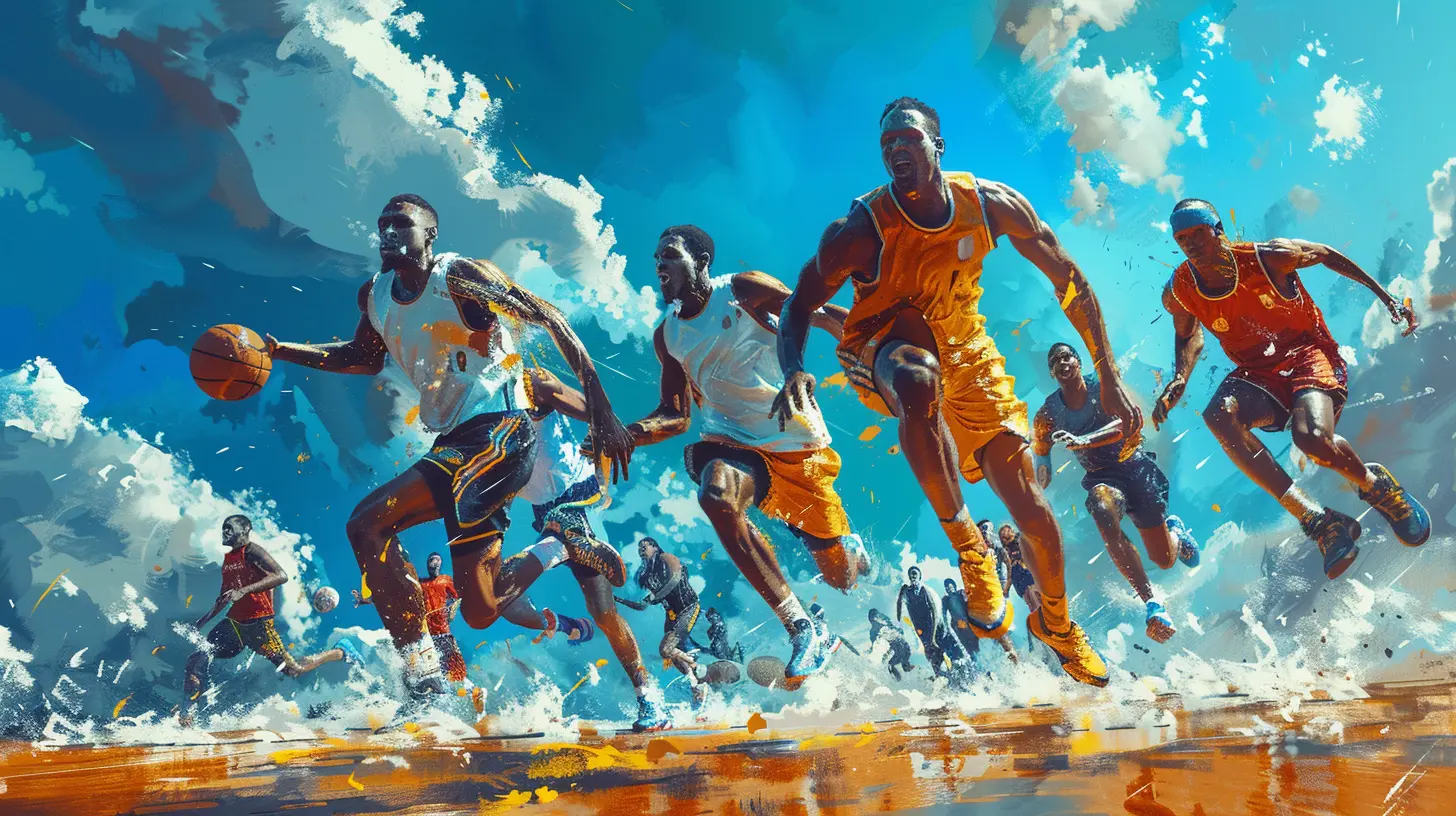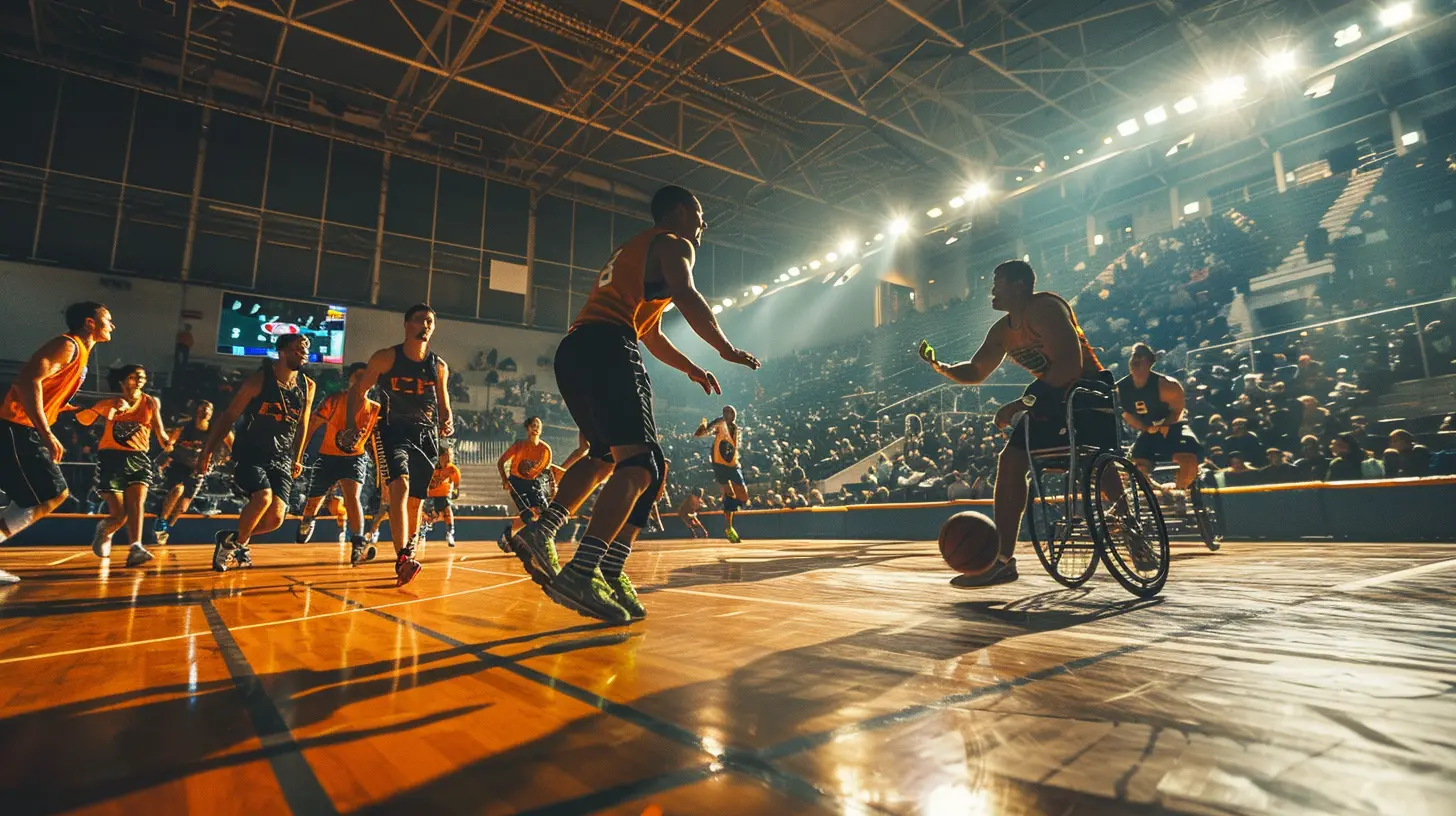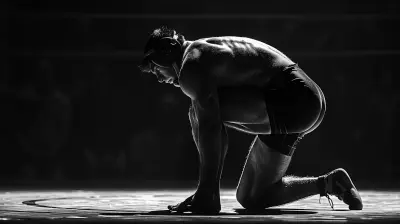Athletes Using Their Platform for a Greater Cause in Charity Games
24 July 2025
Sports have always captivated the world, bringing together individuals from all walks of life. But in the modern era, athletes are no longer just icons on the field; they are influencers, role models, and change-makers. More importantly, many athletes use their vast platforms and influence to advocate for social causes, raise awareness, and contribute to charitable efforts. One of the most impactful ways they do this is through charity games.
Ever wondered how much good a simple game of basketball or soccer can do? Well, buckle up because we're about to dive deep into how athletes are leveraging their fame and platform for a greater cause in charity games.

The Power of Influence: Athletes as Agents of Change
Athletes have a unique position in society. They are admired, followed, and often viewed as heroes by millions. Think about it: how many times have you seen kids (or even adults) mimic their favorite sports star's moves or wear their jerseys? This level of influence is massive. But it's not just limited to sports. Athletes can inspire change in a way that politicians or even celebrities sometimes can't.When athletes speak, people listen. And when they play for a cause, they bring attention to issues that might otherwise go unnoticed. Charity games are one of the most direct ways athletes can combine their passion for sports with their desire to make a difference in the world.
Why Do Athletes Participate in Charity Games?
It’s simple. Charity games allow athletes to give back to the community. But beyond that, it's a platform for them to raise awareness for causes they deeply care about. Through these events, they can generate donations, start conversations, and inspire their fans to take action.But here's the kicker: charity games aren't just about the money. Sure, they can raise millions (and we’ll get into some jaw-dropping numbers later), but more importantly, they spread awareness. When an athlete like LeBron James or Serena Williams participates in a charity game, it gets press coverage. And that press coverage draws attention to the cause.
So, whether it’s for disaster relief, education, health awareness, or social justice, these events have the power to create real, lasting change.

Iconic Charity Games and the Causes They Support
Now, let’s dive into some of the most memorable charity games and the causes they’ve helped. Some of these events have become legendary, not just for the talent on the field but for the impact they’ve made off of it.1. NBA All-Star Weekend: Celebrity Game
The NBA All-Star Celebrity Game has become a staple of the NBA All-Star Weekend. While it’s entertaining to watch celebrities try their hand at basketball, it’s also a major charity event. The NBA uses this game to raise money for various causes, including education initiatives, disaster relief, and youth programs.One of the most significant beneficiaries of the NBA’s charity efforts is the NBA Cares foundation. The organization has raised millions for various causes over the years, and the Celebrity Game is a huge part of that effort. It's not just a game; it's a platform for change.
2. Soccer Aid for UNICEF
Soccer Aid is another prime example of athletes using their platform for a greater cause. Launched in 2006 by Robbie Williams and Jonathan Wilkes, Soccer Aid raises money for UNICEF, the United Nations Children’s Fund. The event pits celebrities and football (soccer) legends against each other in a friendly match to raise funds for children in need.Since its inception, Soccer Aid has raised over £60 million for UNICEF, helping to provide clean water, vaccines, and education to children around the world. The game is broadcast live on television, further spreading awareness about the importance of UNICEF’s work.
3. The Match: Tiger Woods vs. Phil Mickelson
Golf might not seem as fast-paced or action-packed as basketball or soccer, but when Tiger Woods and Phil Mickelson go head-to-head, the world pays attention. In 2020, amidst the COVID-19 pandemic, the two legendary golfers teamed up with NFL stars Tom Brady and Peyton Manning for "The Match: Champions for Charity."This charity golf event raised over $20 million for COVID-19 relief efforts. Beyond the financial contributions, the event showed how athletes from different sports can come together for a common cause. It also served as a reminder that even during a global crisis, sports can offer hope and unity.

How Charity Games Benefit Communities
While charity games raise significant amounts of money, their impact goes beyond the financial contributions. These events often serve as community-building experiences, bringing fans, athletes, and organizations together for a common goal.Here are some of the ways charity games make a difference:
1. Raising Awareness
One of the most significant impacts of charity games is raising awareness for important causes. Think about it: how often do you hear about issues like food insecurity, water shortages, or education inequality outside of news headlines? Charity games put these issues front and center, sparking conversations and encouraging people to take action.For instance, when athletes participate in a game for breast cancer awareness, they’re not just raising money. They're also reminding their fans to get regular check-ups, wear pink, and support research efforts.
2. Inspiring the Next Generation
Charity games also serve as a source of inspiration for young people. When kids see their favorite athletes playing for a cause, they learn the importance of giving back and using their skills for good. It shows them that sports aren't just about winning trophies; they're about helping others too.3. Uniting Communities
Sports have an incredible ability to bring people together. Charity games unite communities by giving them a shared purpose. Whether it’s a local event or a global one, these games remind us that we can come together for a greater good.
The Role of Social Media in Amplifying Charity Games
In today’s digital age, social media plays a massive role in amplifying the message of charity games. Platforms like Instagram, Twitter, and TikTok allow athletes to share behind-the-scenes content, promote the event, and engage directly with their fans.For example, when a player posts about an upcoming charity game, they’re not just promoting the event; they’re also encouraging their followers to get involved. Whether it’s through donations, attending the game, or simply spreading the word, social media has become a powerful tool for these events.
Case in Point: Colin Kaepernick
Colin Kaepernick’s social activism is a prime example of how athletes can use their platform on and off the field. While his kneeling protest during the national anthem made headlines, Kaepernick has also been involved in numerous charity events aimed at supporting social justice causes. Through his foundation, the Know Your Rights Camp, Kaepernick has raised funds to educate and empower marginalized communities.He frequently uses social media to promote these events and highlight the importance of social justice. This is a clear example of how athletes can leverage their platform and following for a cause much bigger than sports.
Charity Games: Not Just a One-Time Event
One of the most significant misconceptions about charity games is that they’re just one-time events. In reality, many athletes are deeply committed to the causes they support, and charity games are just one way they contribute. For many, these games are part of a larger effort to bring about change.LeBron James and the I PROMISE School
LeBron James is a great example of an athlete who goes above and beyond. While he has participated in numerous charity games, his most significant impact has been through the I PROMISE School, a public school he helped create in his hometown of Akron, Ohio. The school provides free tuition, meals, and even bicycles to students, many of whom come from underprivileged backgrounds.While charity games are a fantastic way to raise money and awareness, athletes like LeBron show that their commitment to giving back doesn’t end when the game is over.
Wrapping It Up: The Ripple Effect of Charity Games
At the end of the day, charity games are a win-win. Athletes get to do what they love while giving back to causes they care about. Fans get to watch their favorite stars in action, all while contributing to a greater good. And the causes? They get the attention and support they need to make a real difference.In a world where athletes are often placed on pedestals, it’s refreshing to see them use their platforms for positive change. Charity games show us that sports have the power to do more than entertain — they have the power to change the world.
So next time you watch a charity game, remember: it’s not just about the score. It’s about the impact.
all images in this post were generated using AI tools
Category:
Charity GamesAuthor:

Ruben McCloud
Discussion
rate this article
1 comments
Rocco McCarron
What a fantastic read! It's inspiring to see athletes leverage their influence for meaningful causes. Their commitment to giving back truly shows the heart of sports. Keep it up!
August 15, 2025 at 10:31 AM

Ruben McCloud
Thank you! I'm glad you found it inspiring. Athletes truly make a difference with their platforms.


